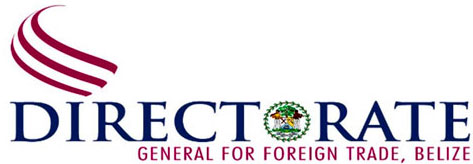The Trade Related Aspects of Intellectual Property Rights (TRIPS) Agreement, which came into effect on 1 January 1995, is to date the most comprehensive World Trade Organization multilateral agreement on intellectual property. Intellectual property covers copyright and related rights (i.e. the rights of performers, producers of sound recordings and broadcasting organizations or any creators of literary and artistic works); trademarks including distinguishing service marks, geographical indications including appellations of origin, industrial designs, that is, ornamental or aesthetic qualities of a product; patents including the protection of new varieties of plants, the layout-designs of integrated circuits, and undisclosed information including trade secrets and test data. The three main features of the Agreement are: standards; enforcement and dispute settlement. WTO Members are left free to determine the appropriate method of implementing the provisions of the Agreement within their own legal system and practice.
Belize deposited its instrument of acceptance for the 2005 protocol amending the WTO’s TRIPS Agreement on 15 September 2016. This Agreement enables developing and least-developed countries (LDCs) to access much needed medicine on a more affordable basis. The protocol is intended to formalize a decision to give poorer WTO Members access to affordable medicines. The protocol also allows exporting countries to grant compulsory licences to their generic suppliers to manufacture and export medicines to countries that cannot manufacture the needed medicines themselves. These licences were originally limited to predominantly supplying the domestic market.[2]
Belize Intellectual Property Office (BELIPO) is the national agency responsible for the protection of copyrights, industrial designs, patents, trademarks, new plant varieties, and layout designs (topographies) of integrated circuits. Belize’s intellectual property legislation became WTO/TRIPS compliant in June 2000.[1] Details of applications, renewals, assignments and mergers for trademarks, patents, and industrial designs are published in BELIPO’s Intellectual Property Journal (http://www.belipo.bz/ip-journal/).
Intellectual Property rights are linked closely with trade. The Caribbean Basin Initiative (CBI) of the United States (US) is given effect through several US laws[3], one of which is the Caribbean Basin Trade Partnership Act (CBTPA). Seven CARICOM States[4] are currently beneficiaries under CBTPA. The CBTPA expires on 30 September 2020. Eligibility for beneficiary treatment under the CBI is contingent on whether the beneficiary State is in compliance with required criteria. Enforcement of intellectual property rights, with special reference to broadcast licensing and copyright, is essential to enjoy the benefits of the CBTPA.
Belize has prioritized the implementation of a national cultural policy, focusing on the audiovisual, music, entertainment, and the arts and craft industry, all heavily reliant on an effective Intellectual Property Rights regime. In October 2017, WIPO in partnership with BELIPO, UB and the citrus research and education institute organized a workshop on intellectual property and innovation. The objectives of the workshop were to (i) bring awareness to the relevant stakeholders on the development of the intellectual property framework in Belize; (ii) create partnerships and (iii) evoke mindset changes towards commercializing intellectual property and innovation in order to develop the export potential in the agro-industry; to use distinctive signs as a tool for competitive advantage in business strategies of small and medium-sized enterprises (SMES); and to promote plant variety protection as a business.
Furthermore, the National IP Strategy (NIPS) was developed in 2016 with support from WIPO and currently awaiting endorsement by the Attorney General’s Ministry for implementation. The NIPS will assist greatly towards achieving economic growth and development through the creation of an eco-system supporting the protection, income potential, and enforcement of intellectual property assets. Specifically, (i) to strengthen partnership and increase country involvement in WIPO activities; (ii) strengthen partnerships with relevant entities to increase information sharing and access; (iii) develop sector-specific IP action plans with stakeholders; and (iv) pursue full automation of search, application and payment processes. The NIPS strategy will guide the national action plan for implementation with a focus on copyright, broadcasting licensing and updating of legislation among others.
IPR legislation in Belize contains provisions for enforcement, civil procedures and criminal procedures. Remedies available in civil procedures include the seizure and destruction of the infringing products and the equipment used to manufacture them, as well as payment of damages. Remedies in criminal procedures include fines and imprisonment.
Table 1: Breakdown of Intellectual Protection and related legislation
| IP rights | Protection and legislation |
| Copyright | Covers original literary, dramatic, musical or artistic work for the life of the author plus 50 years; sound recordings, films, broadcasts and cable programmes for 50 years from the end of calendar year in which it was made; typographical arrangements of a published edition for 25 years from the end of the calendar year in which the reedition was first published
Copyright Act (Cap. 252, revised edition 2000) (2000) |
| Trademarks | 10 years from date of filing (renewable)
Trade Marks Act (Cap. 257, revised edition 2000) (2000) |
| Geographical Indications | 10 years from date of filing (renewable)
Trade Marks Act (Cap. 257, revised edition (2000) In fulfilment of Economic Partnership Agreement (EPA) provisions, a draft Geographical Indications Bill was produced in November 2015 and is currently at the Solicitor General’s Office for review.[5] |
| Industrial designs | 5 years from the date of filing, renewable for two consecutive periods of five years each
Industrial Designs Act (Cap. 254) (2000) |
| Patents | 20 years from date of filing, non-renewable
Patents (Amendment) Act, No. 40 of 2005 (2005) Patents Act (Cap. 253, revised edition 2000) (2000) |
| Utility models | 7 years from date of filing, non-renewable
Patents (Amendment) Act, No. 40 of 2005 (2005) Patents Act (Cap. 253, revised edition 2000) (2000) |
| Layout-designs (topographies) of integrated circuits | 10 years from the date of filing or date of first commercial exploitation, not renewable
Protection of Layout-Designs (Topographies) of Integrated Circuits Act (Cap. 256) (2000) |
| New plant varieties | 25 years for vines, forest trees, fruit trees, and ornamental trees, 20 years for all other species
Protection of New Plant Varieties Act (Cap. 255, revised edition 2000) (2000) |
| Electronic Transactions | Electronic Transactions Act Cap. 290:01 |
| Date of membership | WIPO-administered treaties |
| 12 July 2003 | Hague Agreement Concerning the International Deposit of Industrial Designs (1925) |
| 17 June 2000 | Agreement on Trade Related Aspects of Intellectual Property Rights (TRIPS) (1994) |
| 17 June 2000 | Berne Convention for the Protection of Literary and Artistic Works (1886) |
| 17 June 2000 | Convention Establishing the World Intellectual Property Organization |
| 17 June 2000 | Paris Convention for the Protection of Industrial Property (1883) |
| 17 June 2000 | Patent Cooperation Treaty (1970) |
Source: WIPO online information. Viewed at: http://www.wipo.int/wipolex/en/profile.jsp?code=BZ [11/12/2017].
In December 2017, BELTRAIDE facilitated a consultancy for the development of a case study on ‘Marie Sharp’ on the importance of the protection of a business intellectual property commissioned by the Caribbean Export Development Agency 2017. The objective was to highlight the importance of IP and its relevance to the private sector. In the Caribbean Region use of IPRs by businesses for competitive advantages has been low despite ratification of many of the key international treaties.
Other departments have also been promoting the importance of IP. The Belize Customs and Excise Department hosted a regional workshop on IP rights and border management in November, 2017. The workshop focused on combating piracy, counterfeiting and general infringement of IP rights.
Using a collaborative approach, Government of Belize (Ministries of Culture, Trade, Solicitor General’s Office and other stakeholders) has established a cultural working group and an IP task force working with key partners to review on and initiate a mechanism to address enforcement issues. Work continues into 2018 for the development of a comprehensive communication and public awareness agenda and strategy for copyright and building respect for IP. Intellectual Property is at the heart of trade with the potential exponentially propel industries forward.
—————————————————————————————————————————————
[1] www.belipo.bz/e_library.html
[2] WTO online information. Viewed at: https://www.wto.org/english/news_e/news16_e/trip_15sep16_e .htm [18/01/2017].
[3] The Caribbean Basin Economic Recovery Act (CBERA) that brought the CBI into effect in 1983, the Caribbean Basin Trade Partnership Act (CBTPA) that expanded it in 2000, the Trade Act of 2002, the Haitian Hemispheric Opportunity through Partnership Encouragement Act of 2006 (HOPE Act), the HOPE II Act of 2008, and the Haitian Economic Lift Program Act of 2010 (HELP Act)
[4] Barbados, Belize, Guyana, Haiti, Jamaica, St. Lucia, and Trinidad and Tobago
[5] Economic Partnership Agreement is a Trade Agreement between the 15 Member States of CARICOM and the Dominican Republic

